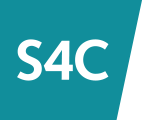Production
Ofcom makes changes to the framework for phone numbers – changes to the Guidelines for Interacting or Competing on S4C Programmes
UK Calling – The Ofcom Broadcasting Code
If you produce programmes for S4C that include a dial-in number to enable viewer interaction or access to further information, you should read this note and take appropriate action. The changes to the Ofcom Broadcasting Code came into effect on 1st July 2015.
Ofcom research has shown that people are confused about how they are charged for making calls to non-geographic numbers ("NGNs") (often 03, 08, 09 and 118 numbers).
On the 1st July 2015 Ofcom imposed a new structure for calls to NGNs which begin 08, 09 and 118. The structure is called the "unbundled tariff".
NGNs which begin 08, 09 and 118 are often service numbers. When calling these numbers, it is possible to be charged not only for the cost of the call itself but also for the provision of the service. Under the present structure it is not clear which part of the call is paid to whom.
The purpose of the "unbundled tariff" structure is to make the cost of calling NGNs which begin 08, 09 and 118 (Unbundled Tariff Numbers ("UTNs")) clear for everyone. It affects all calls to UTNs from consumer mobile phones and landlines. Consumers must be told exactly how much is paid to their phone provider ("the Access Charge") and how much is paid to the service provider (the "Service Charge").
(The Access Charge is the part of the call charged by the phone company of the person originating the call. The Service Charge is the part of the call that can be made up of the cost of routing the call, reception and (where it occurs) payment to the company providing the service for the service received by the consumer.)
The cost of making calls to NGNs is expected to come down as a result of the changes.
In Broadcasting, UTNs are often used to allow viewers to interact with programmes. If the programme(s) you produce for S4C include a telephone number which is a UTN you should consider whether the number you currently use is still the most appropriate (taking into account the cost to the viewer). Your phone service provider will be able to advise you on this.
If, following a conversation with your phone service provider, you decide that the UTN is still the most appropriate number to use, you will need to change the on-screen messages that you give to the viewer about call costs in accordance with the recent changes to the Ofcom Broadcasting Code.
Ofcom have made minor changes to sections 2, 9 and 10 of the Ofcom Broadcasting Code (and the accompanying Guidance) to ensure that the obligations on Broadcasters are clear when using UTNs in their programming.
The detailed changes to the Code and Guidance are attached but a summary of the changes is as follows:-
Broadcasters are required to give viewers specific pricing information when UTNs are used. Currently broadcasters are required to include call cost descriptions that follow this format:-
"This call will cost X pence per minute on a BT line, other landline providers may vary and calls from mobiles may cost considerably more"
From 1st July 2015, Broadcasters will be required to make clear, in a prominent position in close proximity to the number, the relevant Service Charge. Ofcom advises that one of the following messages is used:-
"Calls cost [i.e. service charge] per minute plus your phone company's access charge";
or
"Calls cost [i.e. service charge] per minute plus your network access charge."
If there is no Service Charge you should say:
"The only charge for this call will be your phone company's access charge."
See the UK Calling website for more information (http://www.ukcalling.info/ and especially the advice for businesses at http://www.ukcalling.info/industry).
The company that provides your UTN will be able to tell you more and Ofcom advises that organisations using UTNs talk to their provider to understand how the changes affect them.

